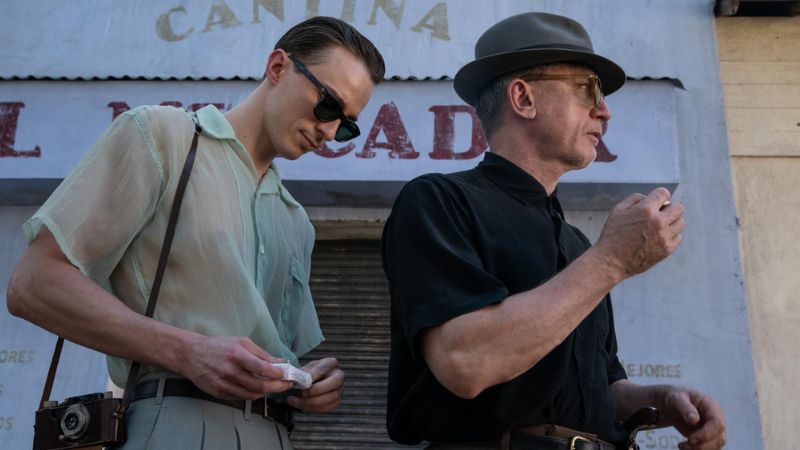Queer | Dir: Luca Guadagnino | ★ ★ ★ ½
It is 1950 and William Lee (Daniel Craig) is an American ex-pat living in Mexico City. A gentleman of independent means, he strides to one of the local ‘friend of Dorothy’ bars with a pistol on his hip, a pout and a penchant for younger men.
Based on the William Burroughs’ autobiographical novella of the same name, the stage-like set and mood lighting make for a much more surreal viewing that Guadagnino’s previous film Call Me By Your Name.
The reason Burroughs moved to Mexico from the United States was to escape the drug laws that would impede his heroin addiction. It was also not a good time to be openly gay and prowling around for companionship.

Dressed in a white suit, Lee has a sweaty desperation that he quells by copious amounts of alcohol and an array of drugs. The stark sets, the oppressive humidity and the noire lighting add to the sense of desperation.
The mood of the film is similar to Cronenberg’s Naked Lunch as Lee’s altered awareness bleeds into the editing, cinematography and special effects. As the film progresses, the esoteric interludes become more detached from the reality and are sometimes challenging in the two-hour plus film.
Although Lee is quite successful in enticing the young men to engage in sex, the moments are fleeting, and harsh reality greets him the next morning. When Lee meets Eugene Allerton (Drew Starky), an expat former soldier who has just arrived in the city, he sees the possibility of a long-term relationship.
Lee willingly takes the bi-curious and easy-on-the-eye Eugene to explore the queer underside of the city and also seduces him. Lee even convinces Eugene to come to South American Amazon in search of a hallucinogenic plant that he believes will give him telepathic powers.
Queer is a showcase for Craig’s acting prowess as his character captures the desire and desperation for companionship in an alien land. A pity that the character is overshadowed by the increasing abstractness of the hallucinations, but I suppose that is the point.
Lezly Herbert




